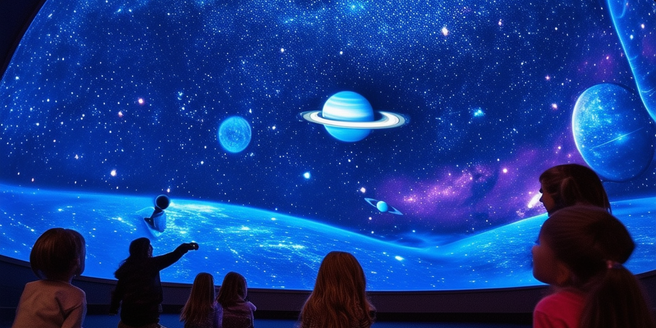
The Benefits of Educational Trips
Educational trips offer children hands-on learning experiences that can enhance their understanding of various subjects. They provide opportunities for experiential learning, making abstract concepts more concrete. These trips can stimulate a child’s curiosity and interest in different fields such as history, science, and art. Additionally, they help bridge the gap between textbook learning and real-world application. Moreover, educational excursions foster social skills and teamwork as children interact with peers and educators in new environments. Exposure to diverse cultures and environments broadens their horizons and promotes adaptability. Ultimately, these trips create memorable learning moments that can inspire lifelong passion for knowledge.
Choosing the Right Destination
Selecting an appropriate destination is crucial for the success of an educational trip. Consider the educational objectives and choose locations that align with the curriculum. Museums, historical sites, nature reserves, and science centers are excellent choices. Ensure the destination offers interactive and engaging activities that cater to various learning styles. Research the facilities and resources available to support the trip’s educational goals. Additionally, consider the accessibility and safety of the location to accommodate all participants. Properly chosen destinations can enhance the educational value of the trip and ensure a meaningful experience for all children involved.
Planning and Preparation Tips
Thorough planning and preparation are essential for a successful educational trip. Start by defining clear learning objectives and outcomes. Create a detailed itinerary that includes travel arrangements, activity schedules, and meal plans. It’s important to consider the specific needs and interests of the students when planning activities. Communicate with parents, providing them with all necessary information and obtaining required consents. Prepare educational materials and activities to maximize learning opportunities. Assign roles and responsibilities to chaperones and ensure everyone is aware of emergency procedures. Conduct pre-trip sessions to familiarize children with the itinerary and expectations. Effective planning minimizes potential issues and ensures a smooth and enriching experience.
Integrating Learning with Fun
Balancing educational content with enjoyable activities is key to maintaining students’ engagement during trips. Incorporate interactive and hands-on experiences that allow children to explore and discover. Organize group activities and games that reinforce learning objectives in a playful manner. Consider using storytelling or guided tours to make information more accessible and entertaining. Allow time for students to explore and interact with their surroundings informally. Integrating fun elements keeps students motivated and enhances retention of knowledge. The goal is to make learning enjoyable, ensuring that the trip is both informative and exciting for all participants.
Safety Measures for Educational Trips
Safety is the top priority when organizing educational trips for children. Conduct thorough risk assessments for all activities and locations. Ensure adequate adult supervision with a suitable chaperone-to-student ratio. Provide clear safety instructions and emergency contact information to all participants. Carry first aid kits and be prepared for medical emergencies. Make sure all transportation means are reliable and safe. Monitor the students continuously and enforce rules regarding behavior and boundaries. Inform parents about the safety measures in place and provide them with regular updates. A well-prepared approach to safety ensures a secure and worry-free experience.
Post-trip Activities and Reflections
Post-trip activities are crucial for reinforcing the knowledge gained and reflections on experiences. Organize group discussions and encourage students to share their insights and memories. Assign creative projects where they can illustrate or write about what they learned. Provide worksheets or quizzes that review the key concepts explored during the trip. Encourage students to present their findings to the class, fostering public speaking and critical thinking skills. Reflecting on the trip helps consolidate the learning and allows children to appreciate the value of their experiences. These activities keep the educational journey ongoing and impactful.
